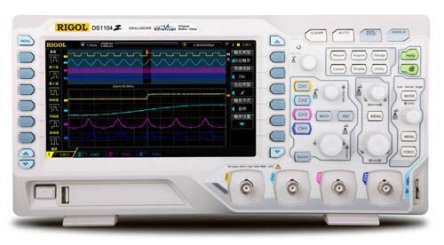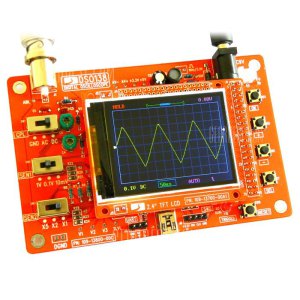It hasn’t taken long for me to discover that I need an oscilloscope. There is only so much you can figure out with a multimeter, although admittedly that is a lot. I have run into a few situations where a multimeter can’t give me all the information that I need.
I’m sure that anyone that has learned this stuff formally already knows this, or maybe it’s so ingrained that they’ve forgotten what troubleshooting was like without one.
I always thought that oscilloscopes were neat to look at and any video blogs that I watched that used them to demonstrate what was going on with a signal were always very helpful, but I didn’t really understand how important they were in understanding what is going on with a circuit.
I felt like I was getting pretty advanced in what I was learning, but I was learning in an ideal digital world, because that’s what I understood the best, it was a little naive. Turning LED’s on and off, sending 1’s and 0’s on a SPI bus, even reading and finally understanding datasheets all seemed so easy, but how do you troubleshoot something that happens or changes over time?
That’s when I realized if I want to do any serious troubleshooting, I’m going to need to get an oscilloscope.
I tried a few avenues for finding a used one, but without knowing how to verify the functionality or quality, it seemed daunting and possibly a waste of money and I was worried I might get duped.
After some research, I found the oscilloscope that I think would fit the bill. It’s not too cheap, but it’s in the range of a reasonable tool that will get a lot of use.

The Rigol DS1054Z is about $399USD, which makes the timing of my realization unfortunate since the conversion rate from Canadian to USD is pretty unfavorable for me. I find it hard to stomach “throwing away” money on the conversion when I’m pretty sure it’s at its worst (it’s got to be, doesn’t it?).

In the mean time, I ordered the infamous DSO138 kit to get me by for now. Much cheaper than the Rigol, only about $25 shipped and at a minimum will be an interesting and potentially challenging kit to work on.
Assuming everything works out, I will have a new tool in my tool-chest and will have a better understanding of my new analog world that I need to discover.
Hopefully I’ll be able to make a few dollars here and there with my new tool and skills and eventually save up for a real oscilloscope, maybe when the Canadian dollar settles down. We’ll see if it’s still the Rigol, it will be interesting to look back if/when I get to that point and see what I thought now.